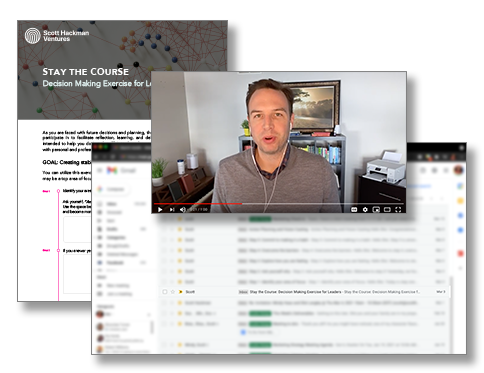In our latest webinar, we had the pleasure of working with Carly Bergy from Lark Voice and Speech Services to provide her expertise around trauma-informed leadership. Carly’s tools and insights are incredibly relevant for leaders in any industry as the workplace phenomenon “quiet quitting” is on the rise. It refers to employees who put no more effort into their jobs than necessary.
Carly asserts that the anti-dote to quiet quitting is trauma-informed leadership, which offers a kind, courageous, and compassionate response to this phenomenon. When leaders understand the trauma and challenges of the workforce, they are more equipped to lead with the agility, skill, and mindset that employees are drawn to and that results in sustainable growth.
What is trauma? Who does it impact?
Trauma is a deeply distressing or disturbing experience (Merriam-Webster, 2022). Prolonged, chronic stress over time can also lead to trauma.
That means there’s a good chance someone on your team has been impacted by trauma.
A general population survey conducted in 24 countries showed that more than 70 percent of respondents experienced a traumatic event, and 30.5 percent had experienced four or more events. Covid 19 has only intensified the alarming trend.
Why is Trauma Informed Leadership Important?
Many employees are feeling the impact of prolonged stress because of the pandemic. A common response from managers is do this on your own time, separate personal life from work.
Here’s what we’d like you to know: you don’t need to dig into people’s trauma or come up with solutions on your own. Nor do you need to provide sympathy. Instead, here are some tips for guiding employees through trauma or stress:
- Acknowledge what employees are feeling. Employees want to know they will be heard, so listen.
- Support employees in getting help. Employees want to know they’ll be able to get the help they need, so guide them to resources. Leverage your HR resources for this.
- Build trust. Employees want to know they will be treated fairly, so clearly communicate expectations with them.
How can I practice trauma informed leadership skills?
Practice Empathy
Empathy is a powerful tool in that it helps people feel heard and understood. Brené Brown defines empathy as follows: “Empathy is not relating to an experience. It’s relating to the emotions underpinning the experience.” How might you feel in the employee’s shoes?
Develop Consent Skills
Consent skills are thinking of ways that employees can ‘opt in’ or ‘opt out’ of activities. Some organizations have made it optional for employees to turn on their cameras for virtual meetings. Others allow employees to opt out of meetings if their participation is not required. Consider: what are some low-risk ways to provide options for employees?
When you develop consent skills and create options for employees, it increases their sense of autonomy and develops trust.
Practice Transparency
Transparency is being as clear as possible in your communication. Many work environments are experiencing volatility and ambiguity, which typically means lots of frequent change. Creating a communication strategy around those quick changes can help with transparency. If job duties require flexibility in this way, employers should have set standards of how last-minute changes should be communicated.
Free Psychological Safety Assessment Tool
According to a two-year Google study, Psychology Safety was found to be the most important, foundational component of high-performing teams. Creating a safe environment is also critical in trauma-informed leadership. This free tool will help you gauge the psychological safety on your team.





